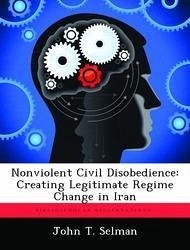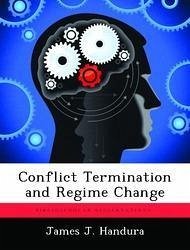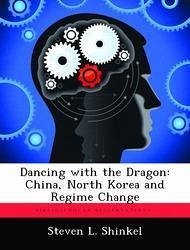Nicht lieferbar

Nonviolent Civil Disobedience: Creating Legitimate Regime Change in Iran
Versandkostenfrei!
Nicht lieferbar
War, diplomacy and economic sanctions are three cornerstones of strategy that have, in the past, successfully coerced rogue regimes to capitulate. However, it may be time to look beyond these persuasion techniques and develop a new method that can lead to regime change. During the 20th Century, there have been several nations that have successfully transitioned from authoritarian rule to democracy. The transitions were hastened by nonviolent civil disobedience. Although nonviolent civil disobedience is a common form of political action throughout the world, many political observers do not unde...
War, diplomacy and economic sanctions are three cornerstones of strategy that have, in the past, successfully coerced rogue regimes to capitulate. However, it may be time to look beyond these persuasion techniques and develop a new method that can lead to regime change. During the 20th Century, there have been several nations that have successfully transitioned from authoritarian rule to democracy. The transitions were hastened by nonviolent civil disobedience. Although nonviolent civil disobedience is a common form of political action throughout the world, many political observers do not understand its nature and often underestimate its effect. Nonviolence is built on three key components that are found in most non-violent campaigns. By examining case studies it was possible to identify each component and its importance in a nonviolent civil disobedience campaign. The key components are mobilization, strategy, and ethics. South Africa's nonviolence campaign demonstrated the power individual groups possess when they come together as one against a regime. South Africa's minority population was successfully mobilized and the ANC used protests, strikes and boycotts to undermine the economy. When the economy collapsed, so did the regime that had profited from the corrupt handling of economic affairs. South African protesters were also able to draw worldwide support when they convinced other nations that apartheid was immoral. The successful overthrow of Ferdinand Marcos can be attributed to the same components of nonviolent civil disobedience. Like South Africa, several individual groups came together to protest the Marcos regime when Marcos declared martial law to avoid defeat in a democratic election. Philippine protestors used boycotts and strikes to tear apart the economy. When the military realized that Marcos no longer had control of the population, the Chief of Staff disavowed the regime. Once the military capitulated, Marcos'; power disintegrated. In each case









